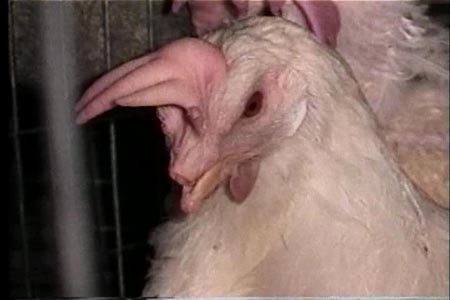I used to have California Whites (Leghorn/Califonia Grey cross) that would peck my BO rooster - four at a time pecking him I assume to eat his feathers although I didn't notice any feathers missing. Maybe they were just trying to dig a hole in his skin? Of course he sat there and took it. All grew up together and had organic chick starter to eat, Redmond Mineral Conditioner available (salt), and lots of ranging space/coop space.
As soon as I read about Leghorns being cannibalistic I got rid of them. (I looked it up, whether it was the breed, as I had never seen any of the breeds we have tried do that.)
The info. is out there on the web that they have that reputation. It varies from flock to flock, but I didn't want to see it progress to blood-drawing.
Now I have Minorcas and Andalusians, and they are VERY nice birds. I love them.
It can be helpful to know what a breed's reputation is, even if you don't experience problems.
Interesting to see people's varied experiences!
As soon as I read about Leghorns being cannibalistic I got rid of them. (I looked it up, whether it was the breed, as I had never seen any of the breeds we have tried do that.)
The info. is out there on the web that they have that reputation. It varies from flock to flock, but I didn't want to see it progress to blood-drawing.
Now I have Minorcas and Andalusians, and they are VERY nice birds. I love them.
It can be helpful to know what a breed's reputation is, even if you don't experience problems.
Interesting to see people's varied experiences!
Last edited:



